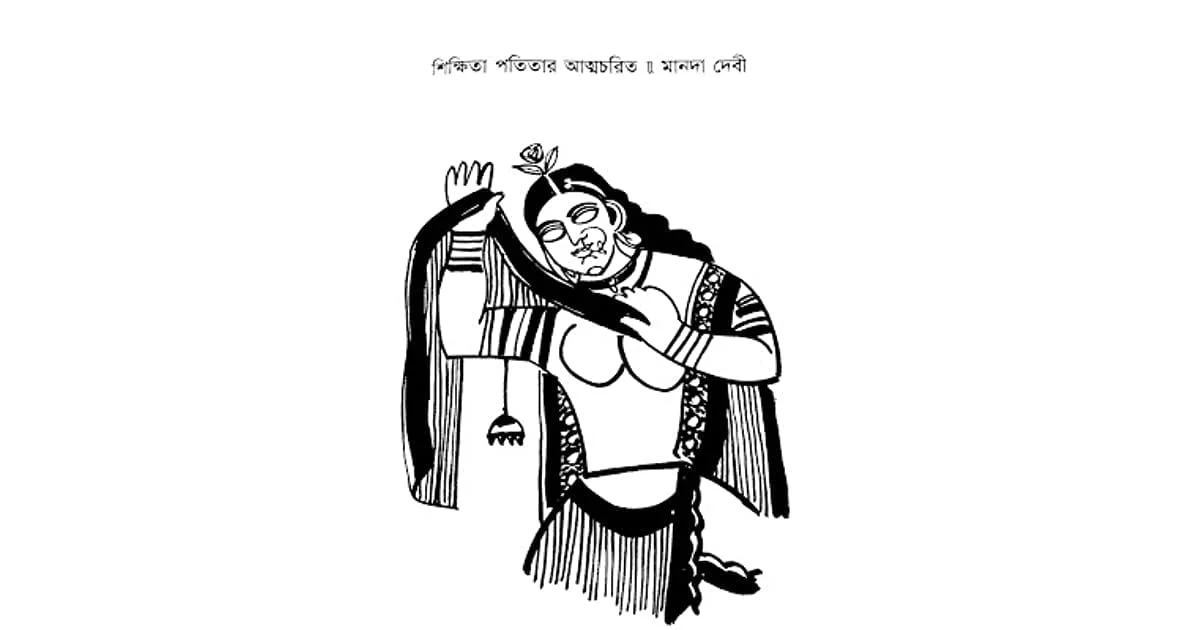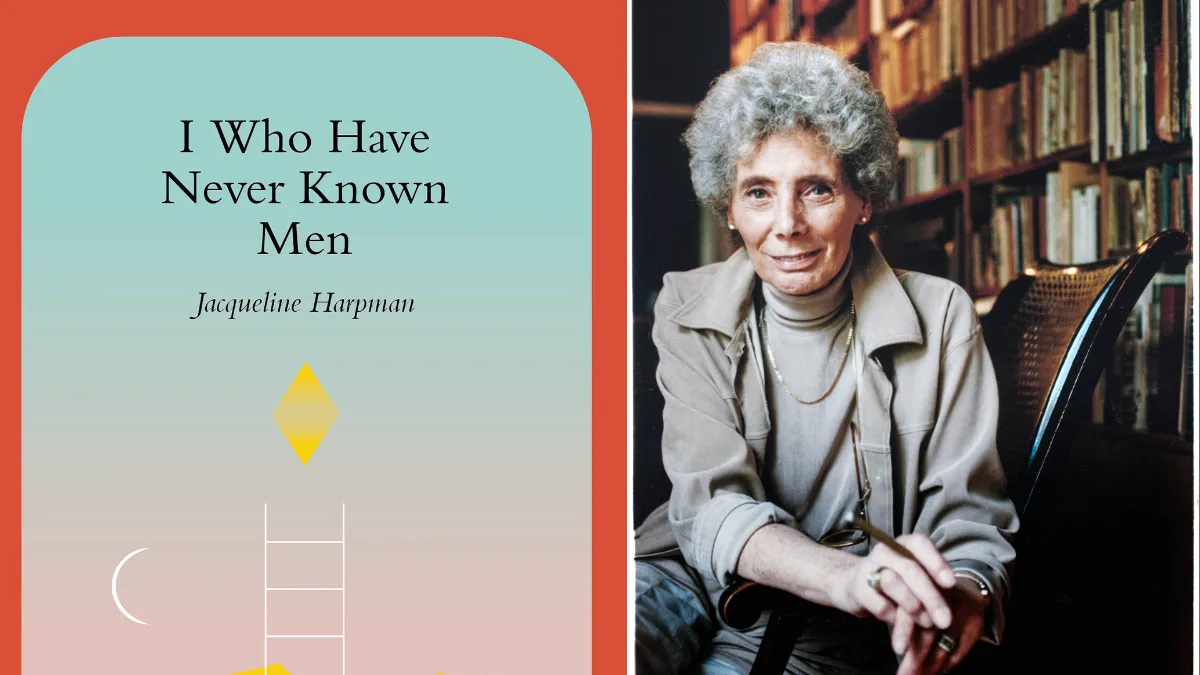“The Vedas cry aloud, the Puranas shout
No good may come to woman
I was born with a woman’s body
How am I to attain truth?”
Through the ages it has been difficult for a woman to establish her independent identity. The task becomes more challenging if the woman is involved in occupations considered as ‘prohibited’. The present article focuses on the autobiographical writing of a woman, who by the standard of her occupation, was seen as a “fallen woman”. She is Manada Debi, a sex worker who lived in colonial Bengal. Her autobiography, known as Shikshita Patitar Atmacharit, translated into English as Autobiography Of An Educated Fallen Woman, was published in 1929. It raises questions about the aesthetics of expression of those who were neglected and looked down upon by the society.
Manada Debi is a sex worker who lived in colonial Bengal. Her autobiography, known as Shikshita Patitar Atmacharit, translated into English as Autobiography Of An Educated Fallen Woman, was published in 1929.
Also read: Nalini Jameela: The Author, Sex Worker & Activist On A Mission
Manada Debi’s autobiography states that she was born and brought up in a liberal family in Calcutta in 1900. Her father was a lawyer. She has not mentioned the name of her father because of his reputation. She was educated at Bethune School. Her mother died when Manada Debi was a child. She was involved in an ill-fated relationship which led her on a downward future throughout. Love prior to or outside conjugality was and continues to be considered transgressive, sinful and punishable.
At this juncture, it is worthy to mention that there is a corpus of fictional literature in late colonial Bengal sympathetically portraying the circumstances that led a woman to prostitution. Such sex work-centric fictional narratives are described by Lalit Kumar Bandopadhyay as “Ganikatantra Sahitya”, further enhancing the historical understanding of the causes and circumstances of prostitution in late colonial Bengal.
Manada Debi has unhesitatingly cursed her profession in her autobiography. She is not holding anyone responsible for her fortune because, she acknowledges, she was personally responsible for her consequences. Manada Debi left home at the age of 15. She went to Delhi with her cousin Rameshda but the relation went beyond and he became her soul mate. Then Manada Debi travelled throughout India with that man, became pregnant, was severally beaten and finally deserted by him.
Manada Debi was conscious of using her body as a commodity and perhaps that is why, she never hesitated considering her as a fallen woman. She confesses that she was educated enough either to teach students or work in a telephone office or she could also serve as a nurse. But neither her circumstances nor her ‘self’ gave her the opportunity to select any of the options. Manada Debi’s instinct bound her to get into the profession of sex work.
A Brief History of Prostitution in Kolkata at that Time
During the 1690s, the sex work sector emerged in the city of Kolkata under the control of the English East India Company. The growth of prostitution in the 19th century Calcutta was intrinsically related to the development of Calcutta as the capital of British India.
In his The Parlour and the Streets, Sumanta Banerjee has pointed out that the development of Calcutta as a city has to be understood in the context of the dominance-dependence relationship that exist between the imperial country and the colony. During the 19th century, clients of the sex workers as well as the sex workers themselves came from varied socio economic class composition. Some of them, such as Binodini Dasi, occupied centre-stage of the society.
As Sumanta Banerjee has noted, a sizeable number of upper-caste maidens, wives and widows continued to feed the stream and the betrayal/desertion cause was a significant factor contributing to sex work even in the early decades of the 20th century. Fiction written on sex workers’ lives include Bhabanicharan Bandopadhyay’s Naba Bibi Bilas, Mary E. Lasley’s Elokeshi Beshya and Abhinetrir Atmakahini by Soudamini.
In the 20th century Bengal there are several instances of the sex workers writing by themselves. Nabinkali Devi penned an intensely erotic poem named “Kaminikalanka” and in the preface to this poem, she gave an account of her own past life. She wrote that she was the daughter of an influential Brahmin, married to an old man and was subsequently abandoned in her natal home. She became involved in an adulterous relationship and eventually became a sex worker.
Manada Debi was radical for her times, given how she raised the question: If the fallen women are the culprits then why not men are stamped in the same way? She took part in swadeshi works but she thought that women of her status must not be involved in such works because it needs chastity which the society believed they lacked.
Ambivalence In Manada Debi’s Identity As The Writer Of Her Autobiography
While some believe Manada Debi is a real person, others argue this to be a writing of a male author. “Manadasundari” a play based on Shikshita Patitar Atmacharit, speculates it to be a fictional account that caused a sensation upon publication in 1929. Others believe that in her later life when Manada Debi decided to write her autobiography she thought to tell everything as it was.
Manada Debi was radical for her times, given how she raised the question: If the fallen women are the culprits then why not men are stamped in the same way? She took part in swadeshi works but she thought that women of her status must not be involved in such works because it needs chastity which the society believed they lacked.
Manada Debi was never image conscious and that made her bold enough to write everything quite explicitly. She wrote that women like her should not have a space/place in the society. Manada Debi would be involved in collecting fund for East Bengal Cyclone Fund and was in contact with Deshbandhu Chittaranjan Das, Basanti Devi, Urmila Devi, Hemaprava Majumdar and many other notable personalities.
After various ordeals, Manada Debi gave up sex work. She probably thought her choice of work had scarred her and maybe the sole reason of writing her autobiography was to get rid of that feeling.
Also read: Why Muslim Sex Workers In Kolkata Change Their Religious Identity
References
- Debi, Manada. ShikshitaPatitarAtmacharit (Autobiography of an Educated Fallen Woman. Kolkata, ChirayataPrakashan, 2004.
- Banerjee, Sumanta. The Parlour and the Streets: Elite and Popular Culture in 19th Century Calcuttta. Calcutta: Seagull Books, 1990.
Featured Image Source: Goodreads
About the author(s)
Dr. Trayee Sinha is Assistant Professor of Women's Studies at Diamond Harbour Women's University. Her area of interest is gender studies and postcolonial literature. She is interested in exploring 'her'-stories and prefers to examine intersectionality in the discourse of gender.




